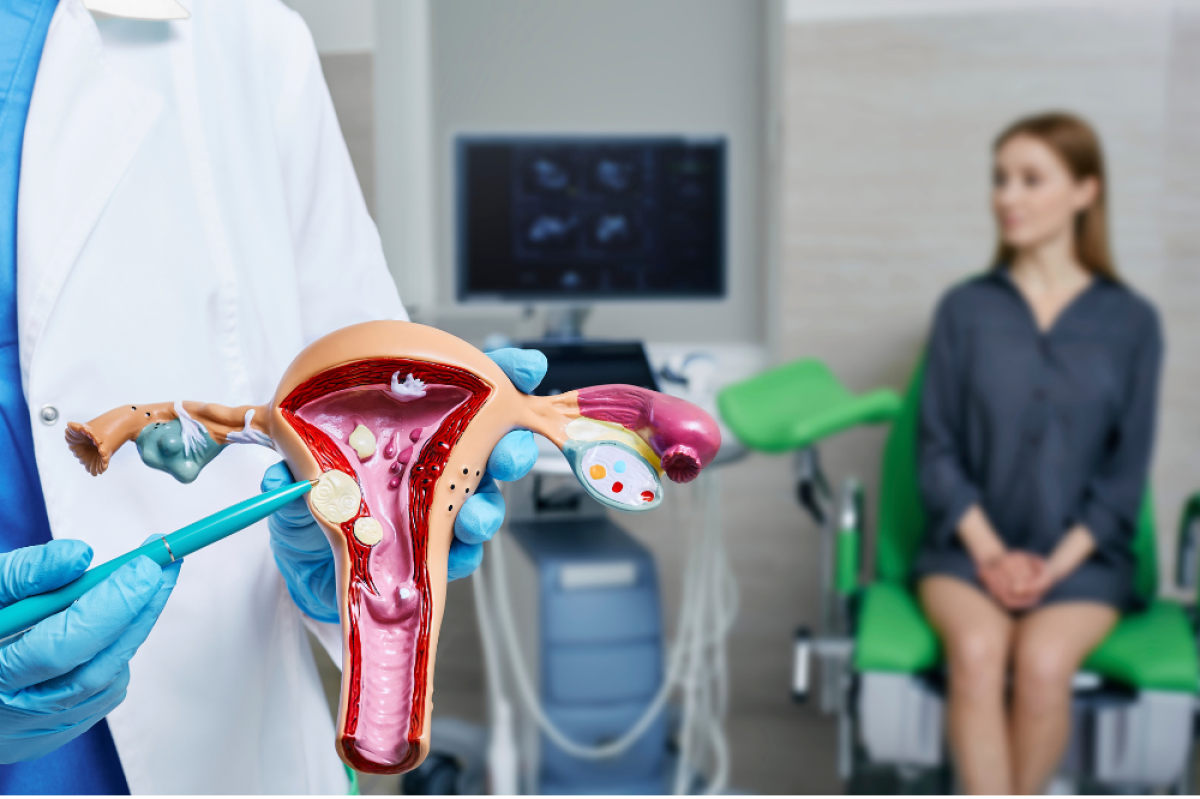How Does Culture Affect Reproductive Health?

There are many factors that blend together to affect reproductive health. One of the most important factors is lifestyle choices such as exercising, eating right and avoiding smoking or vaping. As important as healthy habits are, they’re not the only factors that can affect reproductive health. Culture is another factor that can contribute to the health of your reproductive system. How does culture affect reproductive health?
Cultural and Sexuality
An individual’s beliefs about sexuality are formed based on what’s taught at home and in the community, which may include the neighborhood, the school and the church. Many of the choices people make are influenced by what’s socially acceptable in their culture. While this is true for people of all ages, cultural beliefs and attitudes can have an especially big impact on adolescents and young adults.
In adolescents, behavior that may be considered risky in some cultures is acceptable in others. For example, in Western cultures, behavior that may include underage drinking and sexual activity is often considered part of growing up.
Making the choice to have unprotected sex increases the risk of unplanned pregnancy or sexually transmitted infections (STIs). Impulsive decisions that are made during adolescence and early adulthood can lead to long-term consequences such as damage to reproductive organs and infertility.
Access to Healthcare
Within every culture, there are various sub-cultures that may be based on differences such as ethnicity, socioeconomic status or religion. Some of these sub-cultures may not have access to adequate healthcare or family planning information and may not have a clear understanding of why routine healthcare visits are important.
People may postpone seeking medical attention for cultural reasons, even when they’re experiencing symptoms that are concerning or out of the ordinary such as pelvic pain or changes in the menstrual cycle. Not having regular gynecological exams increases the risk of not being aware of having conditions like cervical cancer or pelvic inflammatory disease.
Lack of Accurate Information
In some cultures, it’s unacceptable to speak openly about sex or to ask questions. Without accurate information, it can be difficult or impossible to make smart choices about things that can affect reproductive health on a long-term basis. When a group of people don’t have the information they need to make good decisions, those who have contracted STIs or HIV don’t seek medical care. This means their illness isn’t diagnosed or treated and the risk of illnesses that are sexually transmitted quickly spreading increases.
It’s crucial for people to have the opportunity to obtain information on sexuality without fear of stigma or being condemned by their communities. Women who are pregnant need to have access to medical care throughout their pregnancy for the sake of their own health and the health of their child.
It’s important to be proactive about your overall health and your reproductive health. To make sure your reproductive system is as healthy as possible, call one of our offices at the Center for Reproductive Health to work with our experts on maintaining good reproductive health.
Eliran Mor, MD
Reproductive Endocrinologist located in Encino, Valencia & West Hollywood, CA
FAQ
What does a reproductive endocrinologist and infertility specialist do?
Reproductive endocrinology and Infertility is a sub-specialty of Obstetrics and Gynecology. In addition to managing medical and surgical treatment of disorders of the female reproductive tract, reproductive endocrinologist and infertility (REI) specialists undergo additional years of training to provide fertility treatments using assisted reproductive technology (ART) such as in vitro fertilization.
Reproductive endocrinologists receive board certification by the American Board of Obstetrics and Gynecology in both Obstetrics and Gynecology and Reproductive Endocrinology and Infertility.
When should I see an REI specialist?
In general, patients should consider consulting with an REI specialist after one year of trying unsuccessfully to achieve pregnancy. The chance of conceiving every month is around 20%, therefore after a full year of trying approximately 15% of couples will still not have achieved a pregnancy.
However, if a woman is over the age of 35 it would be reasonable to see a fertility specialist earlier, typically after 6 months of trying.
Other candidates to seek earlier treatment are women who have irregular menses, endometriosis, fibroids, polycystic ovary syndrome (PCOS), women who have had 2 or more miscarriages, or problems with the fallopian tubes (prior ectopic pregnancy).
What are the reasons we are having trouble conceiving?
Approximately 1/3 of the time cause for infertility is a female factor, 1/3 of the time a male factor, and the remaining 1/3 a couples’ factor.
At CCRH, we emphasize the importance of establishing a correct diagnosis. Both partners undergo a comprehensive evaluation including a medical history and physical exam.
Furthremore, the woman’s ovarian reserve is assessed with a pelvic ultrasound and a hormonal profile. A hysterosalpingogram (HSG) will confirm fallopian tube patency and the uterine cavity is free of intracavitary lesions. A semen analysis is also obtained to evaluate for concentration, motility, and morphology of the sperm.
Additional work up is then individualized to direct the best possible treatment option for each couple.
What is IVF? What is the process like?
In vitro fertilization (IVF) is the process that involves fertilization of an egg outside of a woman’s body.
The process starts with fertility drugs prescribed to help stimulate egg development. In your natural cycle, your body is only able to grow one dominant egg, but with stimulation medication we can recruit multiple eggs to continue to grow. After about 8-10 days of stimulation, the eggs are surgically retrieved and then fertilized with sperm in a specialized laboratory. Fertilized eggs are then cultured under a strictly controlled environment within specialized incubators in the IVF laboratory for 3-5 days while they develop as embryos. Finally, embryos (or an embryo) are transferred into the uterine cavity for implantation.
Should I have IVF?
Before deciding if IVF is the right choice, it’s important to sit down with an REI specialist to discuss available treatment options. For some people, other methods such as fertility drugs, intrauterine insemination (IUI) may be the best first choice treatment. At CCRH, we believe each individual couple is unique and not everyone needs IVF.
Is the IVF procedure painful?
While not painful, the fertility medications may some side effects including headaches, hot flashes, mood swings, and bloating. The injection sites may also bruise.
Will IVF guarantee a baby?
Unfortunately, no. Many people think once they start IVF it’s a matter of time that they will be pregnant and have a baby. But according to national statistics per the Society of Assisted Reproduction (SART), on average 40% of assisted reproduction cycles achieve live births in women under age 35. The chances of success then continue to decrease with advancing age.
At CCRH, we employ only evidence-based interventions to ensure patient safety and optimal outcome. While we cannot guarantee a baby, we guarantee that you will receive the best, most advanced, personalized care to help you maximize your chance of a baby.
What is the success rate for IVF?
The average IVF success rate (success measured in live birth rate) using one’s own eggs begins to drop around age 35 and then rapidly after age 40. This is due to the decline in egg quantity and egg quality as a woman ages.
Our clinic’s success rate consistently beats the national average year after year.
Do insurance plans cover infertility treatment? How much does IVF cost?
Individual insurance plans often do not have any coverage for infertility treatments. If you have a group plan, you can call members services to see if they have coverage for infertility (including consultation/workup and IVF).
After your consultation with our REI specialist, one of our dedicated account managers with sit with you to go over the cost of treatment.




